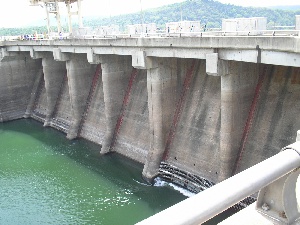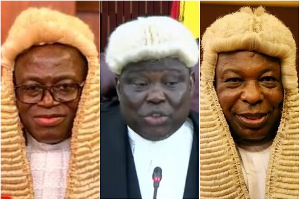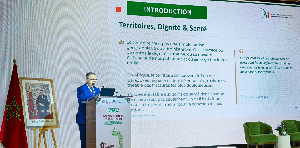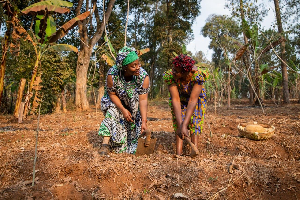The Energy and Water problem in Ghana is not by accident but it is partly due to the climate change which has become a reality worldwide (Global warming).
According to Mrs Beckett, the current British Foreign Secretary, “Climate change could spawn a new era of conflict around the world over water and other scarce resources unless more is done to curb greenhouse gas emissions” 2007.
She cited Darfur crisis as climate driven conflict; and quoted evidence that a similar conflict was brewing in Ghana where Fulani cattle herdsmen are reportedly arming themselves to take on local farmers in confrontation over water and land as climate change expands the Sahara desert.
Speaking at the Royal United Services Institute (2007), Mrs Beckett said River Nile could lose 80% of its flow into Egypt because of climate change. She pointed out that the public and private sectors in Britain have to cooperate to ensure the bulk of their investment in the energy sector by 2030 was spent on low carbon energy efficiency options.
Writing in the Sunday Times, Ringshaw (2007) reported that “ the lights in UK could go out within 8 years as demand is predicted to outstrip supply, He quoted Simon Skillings, director of strategy and energy policy at Eon, UK, Britain’s largest integrated company thus: “the idea of the lights going out [in UK] is not a fantasy. People seem to accept that security of energy is a right. It is not”.
The current low volume of Akosombo Dam is due to climate change. Volta River is losing its water volume. Akosombo Dam was originally meant for a population of less than 5 million. At the time of construction, there were not many electrical gadgets in Ghana. Because our population was small, the demand for electricity was less. The government was able to export some energy to some neighbouring countries like Togo, Benin. Now, population in most countries are increasing, therefore, supply of electricity from Akosombo Dam cannot meet the demand from Ghana and the countries which are benefiting from Akosombo Dam at the moment.
As Ghana is now facing a new problem from the energy consumption, Ghanaians should all come on board with long term energy strategy or policy for the present and the future generation. If the West is planning towards the curtailment of carbon emission into the atmosphere, we should also contribute in the reductions of greenhouse gases in the atmosphere too.
As my modest contribution, I wish to share with Ghanaians the following simple energy efficiency action plan:
1. Only boil as much water as you need
For example, if everyone in the UK boiled only as much water as they needed, enough electricity would be saved to power two-thirds of street lighting in the UK (LSBU Energy Centre, 2007)
2. Switch off gadgets when not in use
Don’t leave appliances like TV, fans, air conditions, stereo, DVD players on stand by and don’t leave mobile phones or laptops on charge unnecessarily
3. Don’t use the car for short journeys
You can reduce carbon dioxide emissions and air pollution by reducing the amount of fuel you use. That means cycling, walking or taking public transport whenever you can.
4. Wash your laundry at 30c in the washing machine. 30c uses 40% less electricity than higher temperatures (LSBU 2007)
5. Install at least three energy saving bulbs. They cost a bit more than ordinary light bulbs but they last 12 times longer, saving you more money over the bulbs lifetime (LSBU 2007).
6. Use bucket water rather that water hose to wash your cars
7. Use the sun or wind to dry your clothes instead of tumble dryer
In London, the Mayor of London has introduced congestion charge for motorist driving to and from central London from 7am to 6pm in order to reduce carbon emission.
Making energy from renewable sources such as the sun, the wind or waste products are the most effective ways of tackling climate change and Ghanaians can do it themselves without changing their lifestyles.
The meteorological office in the UK has found that some water reservoirs are still emptier than normal because of April 2007, hot, dry weather. Water companies in Britain have reported that water shortages could affect parts of Britain this summer despite recent floods warning in Britain.
The Climate change is affecting rivers, lakes and rainfall worldwide. Akosombo Dam on river Volta is not exception.
Therefore, let us join hands together and come out with ideas to find solutions to our long term water and energy problems in Ghana.
















